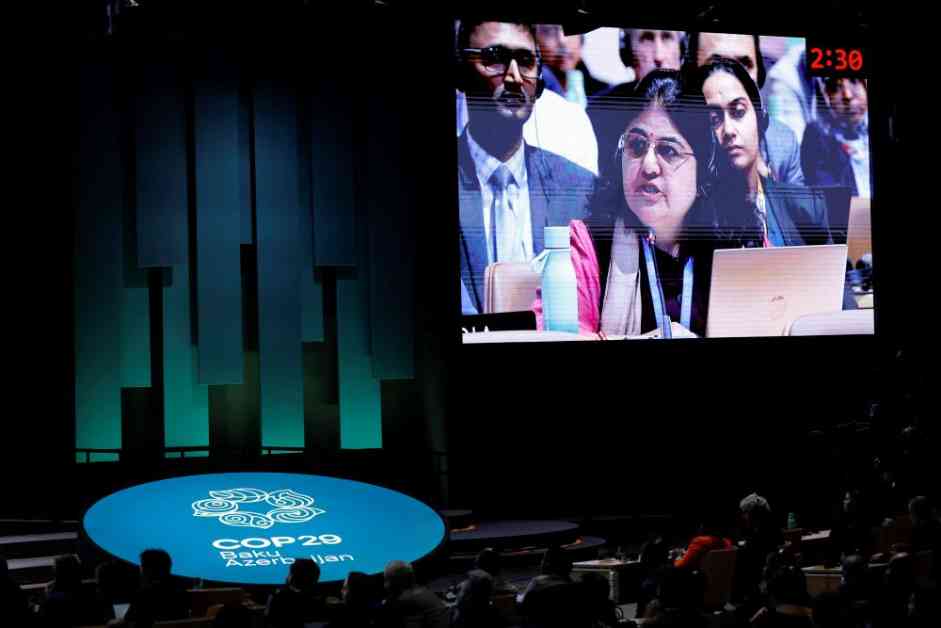India’s Bold Rejection of COP29 Finance Deal Sends Strong Message
India made headlines at COP29 with its fierce objection to the climate finance deal, signaling rich nations’ failure to support the Global South adequately. As diplomats and policy analysts wrapped up the summit on Sunday, India’s strong stance reverberated throughout the conference.
Rejecting the new finance goal for 2026-2035, India argued that the rushed approval lacked due process and called for “much higher ambition” from wealthy nations. In a bold and historic statement, Chandni Raina, an advisor with India’s Department of Economic Affairs, criticized the deal as insufficient to enable conducive climate action. The hard-fought agreement saw rich nations commit to channeling at least $300 billion annually by 2035 for developing countries to bolster climate action.
Fractious COP29: Disappointment Among Vulnerable Nations
The new $300 billion goal replaced the previous annual target of $100 billion, which arrived two years late in 2022. The decision fell short of the expectations of many poorer countries, who had advocated for a more substantial commitment to support their transition to clean energy and climate resilience. Calls for a $1 trillion annual fund, predominantly in grants, were unmet as negotiations settled on the $300 billion figure, highlighting the gap between promises and reality.
Championing the Global South
India’s vocal objection garnered support from various delegates, with Hana Hamadalla of Sudan praising India’s representation of the least developed countries’ views. Sandeep Pai from Swaniti Global emphasized India’s role as a champion for other developing nations in the Global South, shedding light on the need for greater financial support to combat climate change effectively.
Implications for Developing Nations
The downside of the COP29 finance deal became evident, with concerns raised about weaker national climate plans (NDCs) from developing countries like India. Sanjay Vashist from Climate Action Network South Asia warned that the shortfall in finance could hinder these countries’ ability to reflect their ambitious climate actions in their NDCs. The significance of India’s objection extends beyond the summit, signaling a need for a reevaluation of the UNFCCC process to ensure cooperative climate action globally.
In conclusion, India’s resolute stance at COP29 underscores the urgent need for developed nations to fulfill their responsibilities and support vulnerable countries in combating climate change effectively. As the world grapples with escalating environmental challenges, India’s message serves as a poignant reminder of the critical role finance plays in achieving sustainable global climate action.














